Delivering Trauma-Aware Mental Health to 150,000+ Displaced Ukrainians
What it takes to localize digital and face-to-face mental health support at scale — without losing clinical depth or cultural sensitivity.
The U-RISE Project was a multi-country EU initiative that delivered trauma-informed, digital, and face-to-face mental health support to over 150,000 displaced Ukrainians — blending clinical integrity with cultural resonance across borders.
THE CHALLENGE:
As millions fled Ukraine, the crisis wasn’t just logistical — it was deeply psychological. EU countries needed fast, scalable mental health support that could hold trauma, not just track it.
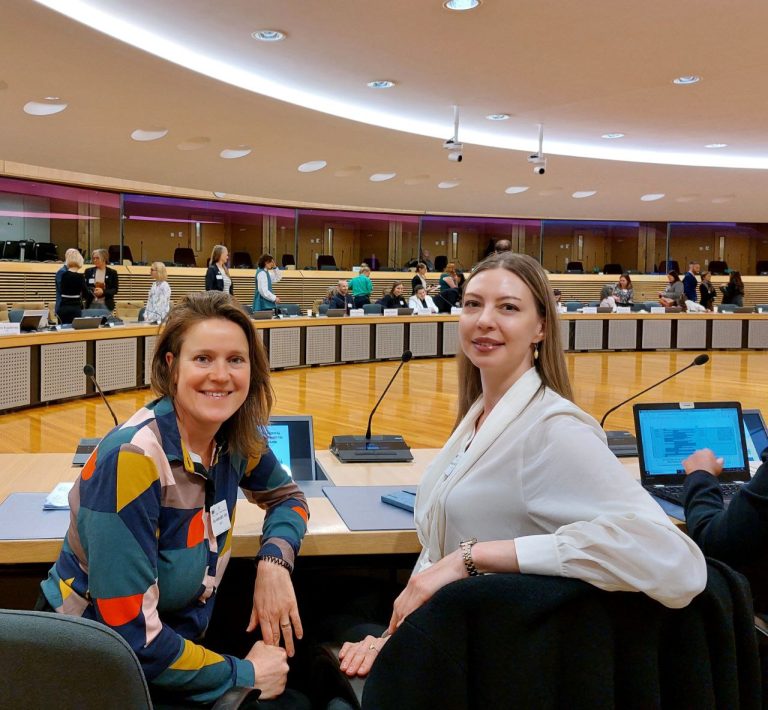
This work required precision, empathy, and emotional credibility — across seven international partners, multiple platforms, and three countries.
MY ROLE:
I was brought into U-RISE as a clinical psychologist and communications strategist.
I helped turn a complex mix of clinical frameworks, European Commission deliverables, and on-the-ground emotional realities into a coordinated response that felt not just accessible, but deeply human.
WHAT I DID:
- Adapted content for digital and offline distribution, created narrative frameworks
- Designed content and flow for facilitator training, grounded in Self-Help+ and Problem Management+ methods
- Trained 22 facilitators across Poland, Slovakia, and Romania to lead trauma-informed group interventions
- Acted as communications bridge across six consortium partners, aligning messaging with deliverables for the European Commission
- Co-authored research papers on MHPSS implementation, later published in the European Journal of Psychotraumatology and Cambridge Prisms: Global Mental Health
- Presented project outcomes at a European Parliament roundtable in Brussels — sharing insights on trauma-informed scale with policymakers
WHAT I DELIVERED:
- Culturally adapted stress-management protocols, grounded in clinical psychology and translated with narrative care
- Trauma-informed training systems that equipped frontline facilitators to hold space with confidence and compassion
- Consortium communications alignment, enabling 6 international partners to present unified, emotionally coherent deliverables
- EU-level advocacy, bringing practitioner insight into strategic dialogue on refugee mental health response
RESULTS
- Presented at the European Parliament, influencing trauma-informed EU health policy
- 150,000+ engagements across digital platforms — meeting EC impact benchmarks
- Implemented in 3 countries, reaching both refugees and support providers
- Trained 22 facilitators, creating replicable psychosocial intervention capacity
- Deliverables approved by the European Commission across all 6 partner organizations
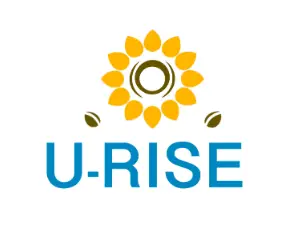
Explore Our Published Research:
✔️ European Journal of Psychotraumatology, providing a framework to scale trauma-informed interventions for displaced populations across Europe
✔️ Cambridge Prisms: Global Mental Health, shaping future MHPSS systems
✔️Frontiers in Psychiatry, getting insights to foster the development of more effective trauma support systems across host countries
EXPERTISE IN ACTION
- Clinical Psychology (Trauma & Group Interventions)
- Cross-Cultural Content Design
- Strategic Communications & Partner Alignment
- EU Project Coordination & Policy Engagement
- Digital Mental Health Content Strategy

A MOMENT THAT LANDED
During one of the facilitator training sessions, a participant pulled me aside and said: “This is the first time I’ve felt confident explaining trauma in my own words.”
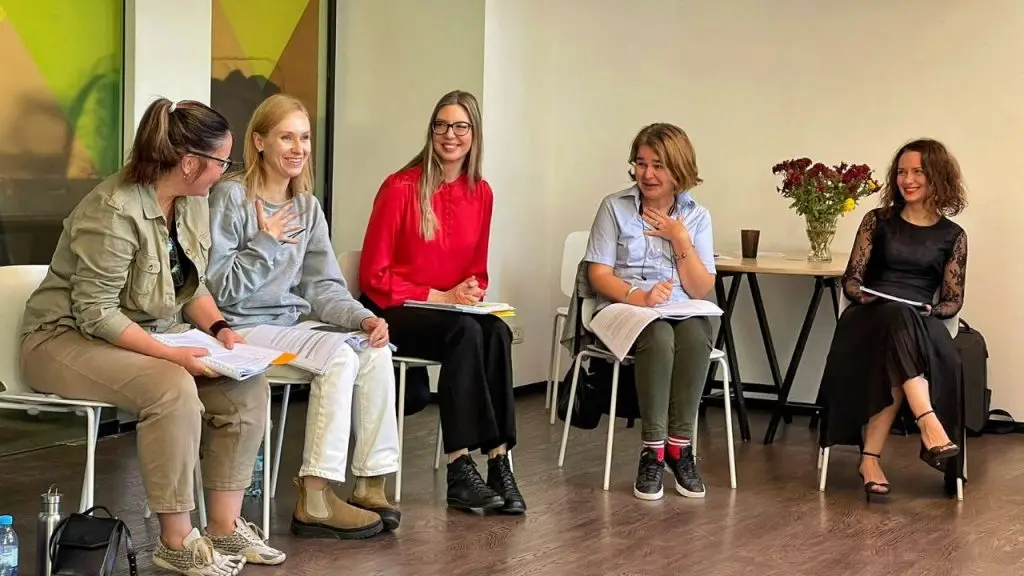
That sentence stays with me. Because it reminded me what this project was really about: Helping people find clarity, language, and voice — even in the aftermath of upheaval.
REFLECTION
This was more than a project. It was a lesson in how care scales — when systems are led by people who listen.
Whether I was adapting WHO content, facilitating training, or translating tension between stakeholders, I held one principle:
“Psychological safety isn’t just ethical — it’s operational. In crisis settings, it becomes a strategic priority.”
That’s what allowed this initiative to land — across countries, contexts, and communities in motion.
Curious how it all came together? Watch the video to see the U-RISE Project in action.
Related Posts
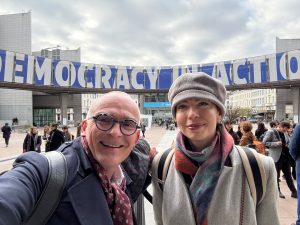
Designing Trust Infrastructure for Emerging Mental Health Systems
Designing Trust Infrastructure for Emerging Mental Health Systems How strategic narrative architecture shaped national care policy in the Netherlands — and unlocked cross-European collaboration SYSTEMIC CHALLENGE As Europe explored new models for trauma recovery, one question became central: How do you introduce next-generation care into public systems — when regulation, emotion, and public trust move

Localizing Moodbuster for Displaced Ukrainians — Bridging Science and Human Story
Localizing Moodbuster for Displaced Ukrainians — Bridging Science and Human Story When the Script Was My Story: Localizing a Depression Tool with Clinical Insight and Emotional Truth. Moodbuster is a clinically validated digital mental health intervention, grounded in cognitive-behavioral therapy (CBT) principles. Moodbuster was designed to make structured, evidence-based support accessible beyond traditional clinical settings.
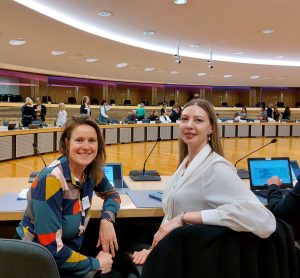
Delivering Trauma-Aware Mental Health to 150,000+ Displaced Ukrainians
Delivering Trauma-Aware Mental Health to 150,000+ Displaced Ukrainians What it takes to localize digital and face-to-face mental health support at scale — without losing clinical depth or cultural sensitivity. The U-RISE Project was a multi-country EU initiative that delivered trauma-informed, digital, and face-to-face mental health support to over 150,000 displaced Ukrainians — blending clinical integrity
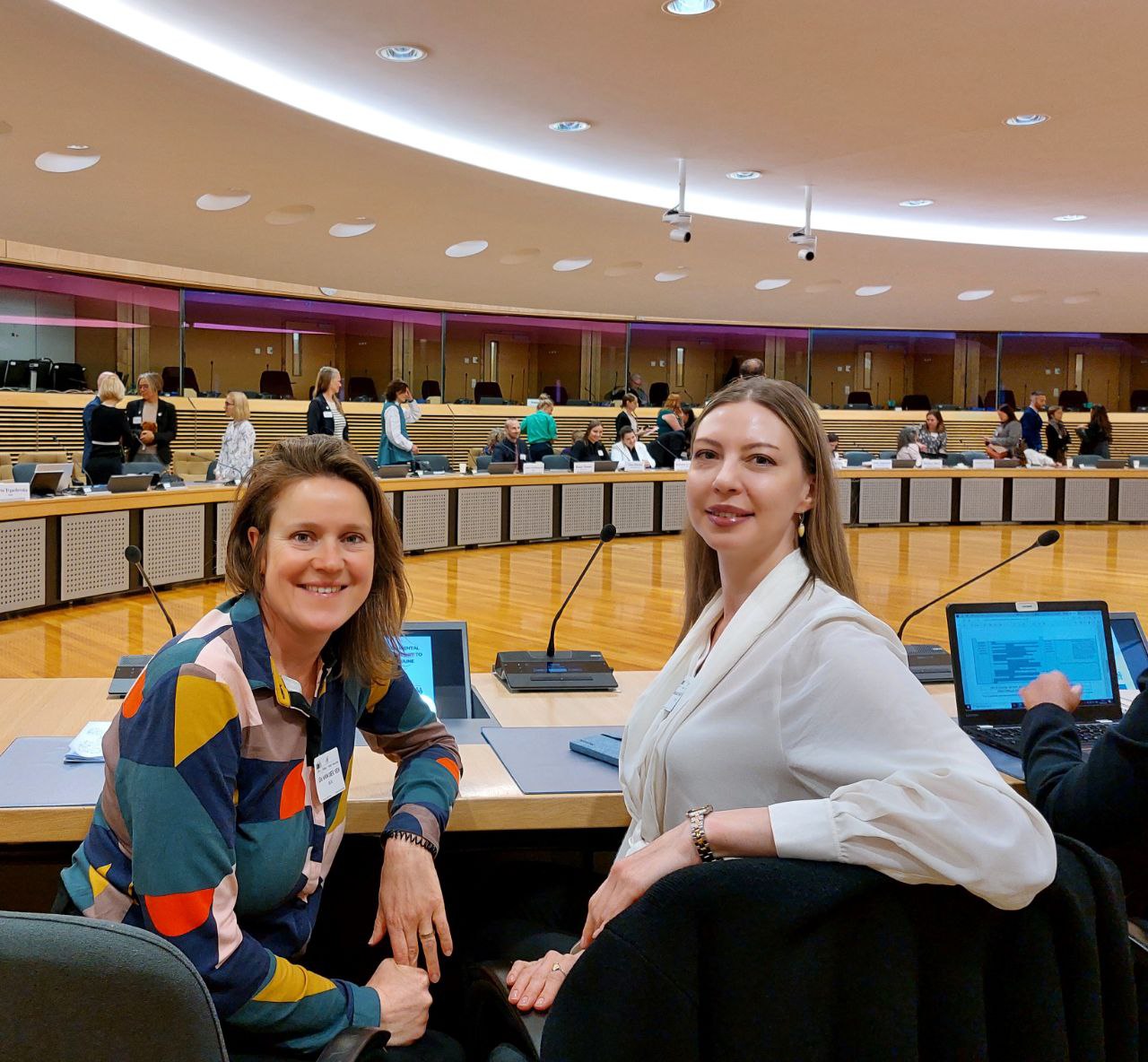
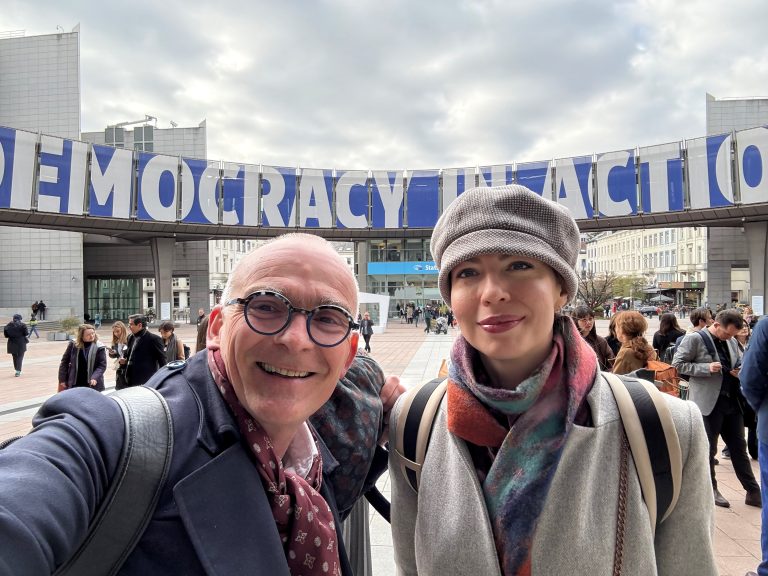

5ld9gb
froc0u
opl4wn
jscyc3
https://shorturl.fm/XxTgu
z9dzxt
8ksiw6
99wcyk
lfrfr4
qwxdls
40h1zt
00nere
gkubww
rdfsie
ie6j5h
vbimhx
https://shorturl.fm/urmzg
smofhk
1nkvuk
x445vp
https://shorturl.fm/tYQ8n
https://shorturl.fm/APQ8J
https://shorturl.fm/giVjy
https://shorturl.fm/PhGXv
d0bzpe
https://shorturl.fm/sOs0H
That’s a great point about strategic thinking – card games really hone that skill! I’ve been enjoying the instant play aspect of free solitaire – no downloads needed is a huge plus for a quick break. Simple, yet engaging!
https://shorturl.fm/3q9Pn
Sprunki Game brings a fresh twist to the Incredibox experience with new beats and visuals. It’s a great pick for fans wanting more creative freedom. Check it out at Sprunki Game.
https://shorturl.fm/PEb2w
That’s a great point about mindful gaming! It’s easy to get carried away. Setting intentions, like jljl77 suggests, is smart. Check out their guide & maybe try a jljl77 slot download for relaxed fun – responsibly, of course! 😉
Interesting points! Data-driven platforms like JL Boss App are changing the game, especially in the Philippines. Secure logins & diverse options are key. Check out jl boss app slot download for a solid experience – responsible gaming is always first, though!
o3oebn
https://shorturl.fm/qG9W2
Thanks for sharing. I read many of your blog posts, cool, your blog is very good.
Thanks for sharing. I read many of your blog posts, cool, your blog is very good. https://accounts.binance.com/es-MX/register-person?ref=GJY4VW8W
I don’t think the title of your article matches the content lol. Just kidding, mainly because I had some doubts after reading the article.
Thanks for sharing. I read many of your blog posts, cool, your blog is very good.
I’ve been playing on abc8casino for a little minute. Definitely worth a try. Site looks pretty nice! And so far so good. abc8casino
I don’t think the title of your article matches the content lol. Just kidding, mainly because I had some doubts after reading the article.
https://shorturl.fm/iHfX0
Thanks for sharing. I read many of your blog posts, cool, your blog is very good.
Le site web 1xbet rdc propose des informations sur les paris sportifs, les cotes et les evenements en direct. Football, tournois populaires, cotes et statistiques y sont presentes. Ce site est ideal pour se familiariser avec les fonctionnalites de la plateforme.
Envie de parier telechargement 1xbet est une plateforme de paris sportifs en ligne pour la Republique democratique du Congo. Football et autres sports, paris en direct et d’avant-match, cotes, resultats et statistiques. Presentation des fonctionnalites du service.
Online 1xbet cd apk est une plateforme de paris sportifs en ligne. Championnats de football, cotes en direct et resultats sont disponibles. Page d’information sur le service et ses fonctionnalites pour les utilisateurs de la region.
Thanks for sharing. I read many of your blog posts, cool, your blog is very good.
I don’t think the title of your article matches the content lol. Just kidding, mainly because I had some doubts after reading the article.
mp4moviez
kuttymovies
hdmoviearea
123mkv
mkvmoviespoint
ssrmovies
rdxhd
malluvilla
animeowl
animeflix
sflix
moviesjoy
m4uhd
vexmoviezs
putlocker
bmovies
yesmovies
9xmovies
filmyfly
hdhub4u
movieverse
rdxhd
нужна заклепка? заклепка вытяжная нержавеющая надёжный крепёж для прочных и долговечных соединений. Устойчива к коррозии, влаге и перепадам температур. Подходит для металла, строительства, машиностроения и наружных работ.
нужна заклепка? заклепки нержавеющие вытяжные купить 4.8 надёжный крепёж для прочных и долговечных соединений. Устойчива к коррозии, влаге и перепадам температур. Подходит для металла, строительства, машиностроения и наружных работ.
Great insights! For those diving into AI tools, checking out AI Translation options can really boost efficiency. tyy.AI Tools is a game-changer for finding curated solutions.
Thanks for sharing. I read many of your blog posts, cool, your blog is very good. https://accounts.binance.info/fr-AF/register?ref=JHQQKNKN
It’s smart to understand game mechanics – things like RTP & volatility really impact your experience. Seeing platforms like phlboss app download focus on fairness is a good sign. Responsible gaming is key, always! 🤔
Trying out Jili77 com was a game-changer-smooth interface, great live dealer games, and the AI feature really adds value. Definitely worth checking out!
Нужны заклепки? заклепка вытяжная закрытая нержавеющая для прочного соединения листового металла и профиля. Стойкость к коррозии, аккуратная головка, надежная фиксация даже при вибрациях. Подбор размеров и типа борта, быстрая отгрузка и доставка.
Нужен эвакуатор? услуги эвакуатора в спб цена быстрый выезд по Санкт-Петербургу и области. Аккуратно погрузим легковое авто, кроссовер, мотоцикл. Перевозка после ДТП и поломок, помощь с запуском/колесом. Прозрачная цена, без навязываний.
Нужны заклепки? заклепка вытяжная нержавеющая для прочного соединения листового металла и профиля. Стойкость к коррозии, аккуратная головка, надежная фиксация даже при вибрациях. Подбор размеров и типа борта, быстрая отгрузка и доставка.
Нужен эвакуатор? эвакуатор спб быстрый выезд по Санкт-Петербургу и области. Аккуратно погрузим легковое авто, кроссовер, мотоцикл. Перевозка после ДТП и поломок, помощь с запуском/колесом. Прозрачная цена, без навязываний.
Лучший выбор дня: Продать дорожный каток выгодно — адреса скупки рядом со мной официально
Лучший выбор дня: Куда сдать водку быстро — адреса скупки рядом со мной за деньги
Нужен эвакуатор? эвакуатор вызову цена быстрый выезд по Санкт-Петербургу и области. Аккуратно погрузим легковое авто, кроссовер, мотоцикл. Перевозка после ДТП и поломок, помощь с запуском/колесом. Прозрачная цена, без навязываний.
Нужен эвакуатор? эвакуатор спб быстрый выезд по Санкт-Петербургу и области. Аккуратно погрузим легковое авто, кроссовер, мотоцикл. Перевозка после ДТП и поломок, помощь с запуском/колесом. Прозрачная цена, без навязываний.
Продаешь антиквариат? Скупка антиквариата в Москве — выгодно продать старинные вещи оценка и выкуп старинных вещей с понятными условиями. Принимаем фарфор, бронзу, серебро, иконы, монеты, часы, книги, мебель и предметы искусства. Возможен выезд и оценка по фото. Оплата сразу, конфиденциальность.
Продаешь антиквариат? Скупка антиквариата в Москве — выгодно продать старинные вещи оценка и выкуп старинных вещей с понятными условиями. Принимаем фарфор, бронзу, серебро, иконы, монеты, часы, книги, мебель и предметы искусства. Возможен выезд и оценка по фото. Оплата сразу, конфиденциальность.
Авто в ОАЭ https://auto.ae/sale/vrp/ под ключ: продажа новых и б/у автомобилей, диагностика перед покупкой, регистрация и страховка. Прокат на сутки и долгосрок, включая премиум. VIP номерные знаки — подбор вариантов, торг, оформление передачи и сопровождение на русском.
Авто в ОАЭ https://auto.ae/showrooms/all/ под ключ: продажа новых и б/у автомобилей, диагностика перед покупкой, регистрация и страховка. Прокат на сутки и долгосрок, включая премиум. VIP номерные знаки — подбор вариантов, торг, оформление передачи и сопровождение на русском.
Your article helped me a lot, is there any more related content? Thanks!
Recent Changes: https://smartzoz.in/pages/responsible-gambling-tips-and-limits_1.html
Today’s Top Stories: https://loanfunda.in/pages/how-to-tell-fake-casino-from-real.html
I don’t think the title of your article matches the content lol. Just kidding, mainly because I had some doubts after reading the article.
Needed to find a safe link for 55clubdownload, and this page hit the spot! Easy to navigate, no ads popping up everywhere. I Recommend visiting 55clubdownload if you need the app.
All the latest here: http://forastieri.com.ar/buy-verified-google-ads-account-simple-tips-to-render-a-accountant-jobs-advertising-in-the-press-ads2publish-website/
Action tips: http://www.midvalleycottongrowers.com/markets/stocks.php?article=abnewswire-2025-12-4-the-ultimate-guide-to-buying-facebook-advertising-accounts-what-must-be-known
Нужна косметика? корейская косметика из кореи большой выбор оригинальных средств K-beauty. Уход для всех типов кожи, новинки и хиты продаж. Поможем подобрать продукты, выгодные цены, акции и оперативная доставка по Алматы.
Нужна косметика? магазин корейской косметики большой выбор оригинальных средств K-beauty. Уход для всех типов кожи, новинки и хиты продаж. Поможем подобрать продукты, выгодные цены, акции и оперативная доставка по Алматы.
View all: https://fpasa.co.za/media/pgs/how-to-protect-your-data-and-privacy-in-online-casinos_1.html
Updates on the Topic: https://www.socialmention.com/blog/pages/the-psychology-of-winning-and-losing-in-online-casinos.html
Experience Brainy https://askbrainy.com the free & open-source AI assistant. Get real-time web search, deep research, and voice message support directly on Telegram and the web. No subscriptions, just powerful answers.
оружейный кейс кс кейсы cs 2
Your article helped me a lot, is there any more related content? Thanks!
Looking for a casino? elon casino: slots, live casino, bonus offers, and tournaments. We cover the rules, wagering requirements, withdrawals, and account security. Please review the terms and conditions before playing.
Thank you for your sharing. I am worried that I lack creative ideas. It is your article that makes me full of hope. Thank you. But, I have a question, can you help me?
Looking for a casino? https://elon-casino-top.com/: slots, live casino, bonus offers, and tournaments. We cover the rules, wagering requirements, withdrawals, and account security. Please review the terms and conditions before playing.
https://shorturl.fm/3jyC9
mobile casino elon casino
Looking for a casino? https://elon-casino-top.com: slots, live casino, bonus offers, and tournaments. We cover the rules, wagering requirements, withdrawals, and account security. Please review the terms and conditions before playing.
casino rules elonbet casino game
Нужен сайт или продвижение? поисковое продвижение сайта дизайн, разработка, SEO, контекст и аналитика. Делаем быстрые, удобные сайты с понятной структурой, настраиваем продвижение и приводим целевой трафик. Прозрачные этапы, измеримый результат, рост заявок.
Блог обо всём https://drimtim.ru полезные статьи, новости, советы, идеи и обзоры на самые разные темы. Дом и быт, технологии, путешествия, здоровье, финансы и повседневная жизнь. Просто, интересно и по делу — читайте каждый день.
Блог обо всём https://drimtim.ru полезные статьи, новости, советы, идеи и обзоры на самые разные темы. Дом и быт, технологии, путешествия, здоровье, финансы и повседневная жизнь. Просто, интересно и по делу — читайте каждый день.
Всё о столярном деле https://derevoblog.ru в видеоформате: обучающие ролики, мастер-классы, обзоры оборудования и проектов из дерева. Понятные инструкции, практические советы и вдохновение для создания мебели и изделий своими руками.
Всё о столярном деле https://derevoblog.ru в видеоформате: обучающие ролики, мастер-классы, обзоры оборудования и проектов из дерева. Понятные инструкции, практические советы и вдохновение для создания мебели и изделий своими руками.
Your point of view caught my eye and was very interesting. Thanks. I have a question for you.
Looking for a casino? https://elon-casino-top.com: slots, live casino, bonus offers, and tournaments. We cover the rules, wagering requirements, withdrawals, and account security. Please review the terms and conditions before playing.
Сделать тату в Сочи: опытные тату-мастера, авторские эскизы и аккуратная работа. Современное оборудование, одноразовые расходники, соблюдение санитарных норм. Поможем выбрать стиль и размер, проконсультируем по уходу после сеанса.
Нужен дизайн? дизайн интерьеров екатеринбург создаём стильные и функциональные пространства для квартир, домов и коммерческих объектов. Концепция, планировки, 3D-визуализация, подбор материалов и авторский надзор. Работаем под бюджет и задачи клиента.
Your point of view caught my eye and was very interesting. Thanks. I have a question for you.
All the latest here: https://lesfrancais.press/quels-sont-les-bienfaits-cognitifs-des-puzzles/
Нужна недвижимость? объявления недвижимость Томск выгодно купить квартиру, дом или коммерческий объект. Работаем с жилой и коммерческой недвижимостью. Экономим время и защищаем ваши интересы.
Нужен дом? https://flattomsk.ru/tomsk/nedvizhimost/prodazha-doma удобные планировки, разные площади и бюджеты. Подбор вариантов, проверка юридической чистоты, сопровождение до регистрации права. Экономим ваше время.
Сломалась стиралка? ремонт стиральных машин Нижний Новгород всех марок и моделей. Диагностика, замена деталей, настройка электроники. Работаем без выходных, выезд в день обращения, прозрачная стоимость и гарантия на выполненные работы.
Нужна гостиница? гостиница мытищи комфортные номера для отдыха и командировок. Удобное расположение, чистые номера, Wi-Fi, парковка и круглосуточная стойка. Подходит для краткосрочного и длительного проживания, выгодные цены и удобное бронирование.
архитектурное дизайн бюро студия дизайна интерьера
Нужен отель? отель римская спокойное проживание рядом с метро и ключевыми районами Москвы. Современные номера, Wi-Fi, круглосуточная стойка. Подходит для краткосрочного и длительного размещения.
Хочешь отдохнуть? отель на час предлагаем почасовое размещение в комфортных номерах. Удобные кровати, кондиционер, Wi-Fi, душ. Быстрое бронирование, конфиденциальность и выгодные тарифы для краткосрочного пребывания.
Your article helped me a lot, is there any more related content? Thanks! https://accounts.binance.info/en-IN/register-person?ref=A80YTPZ1
Play at https://elon-casino-top.com online: slots from popular providers, live dealers, promotions, and tournaments. Learn about the bonus policy, wagering requirements, payment methods, and withdrawal times. Information for adult players. 18+. Gambling requires supervision.
Play online at https://elonbet-casino-game.com: slots, live casino, and special offers. We explain the rules, limits, verification, and payments to avoid any surprises. This material is for informational purposes only.
Thank you for your sharing. I am worried that I lack creative ideas. It is your article that makes me full of hope. Thank you. But, I have a question, can you help me?
Can you be more specific about the content of your article? After reading it, I still have some doubts. Hope you can help me.
Play online at https://elonbet-casino-game.com: slots, live casino, and special offers. We explain the rules, limits, verification, and payments to avoid any surprises. This material is for informational purposes only.
дизайн проект квартиры спб дизайн агентство
I don’t think the title of your article matches the content lol. Just kidding, mainly because I had some doubts after reading the article.
Dental problems? dentistry Full-service dental care: painless dental treatment, implants, prosthetics, orthodontics, and cosmetic dentistry. Modern equipment, experienced doctors, sterile hygiene, and a personalized approach. Consultation and treatment plan included.
квартира в гродно на сутки снять квартиру в гродно на сутки
открытие кейсов кс симулятор кейсов кс